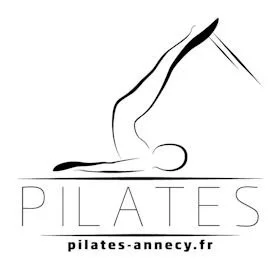Aerial Petit Pilates© training
(in a hammock)
Training in the aerial Petit Pilates© Method (in a hammock) aims to broaden and enrich the repertoire of floor exercises. You will not only learn how to use the hammock in your practice of movement with variations of Petit Pilates© exercises on familiar floors, but you will also understand how to create evolutionary, dynamic and playful variations adapted to children and adolescents.
The main subjects selected are the construction of regressions and progressions in a hammock, the use of dynamics and the development of three-dimensional exercises, stimulating body awareness and the vestibular system in children and adolescents.
Training over 2 days, 650€ net
Details of courses for 2026
Duration of the training 14 hours. A prerequisite of 3 trainees minimum and 25 trainees maximum.
Price: 650€
For a tailor-made training, contact us: marion@petitpilates.com
FRANCE - international French and English training
👉 Annecy - Studio Nova x Petit Pilates 21-22 Nov. 2025
Details of the modules
GOALS
At the end of this training, you will be able to:
Accompany students in the daily practice of children's Pilates, in a hammock, outdoors or in the gym/motricity/studio.
Appropriate the methodology, the teaching tools, the hammock accessory and the principles of the exercise of Little Aerial Pilates specifically adapted to students to enable them to engage more serenely in learning (help with concentration, postural dynamics, management of emotions and risk, awakening of the senses, stimulation of the vestibular system).
Master the postures of Little Aerial Pilates in the game and the playful approach to movement with the needs adapted according to the age of the child and his so atypical specificities.
Pyramid of child and adolescent learning: understanding and stimulating the child through the "correct" movement and the anchoring of a "dynamic" or even "acrobatic" posture in order to provide stability: bodily and sensory (proprioception), emotional (breathing), intuitive and rational (coordination, symmetrization, posture, support and safety).
Teach students to be aware of their functioning in the present and become able to adjust them if necessary (autonomy).
Use warm-up protocols, proprioceptive rituals to be installed before practice and session sheets for students according to their level and age.
This training also provides differentiated responses according to the behavior of the students to help with: sociability and teamwork, self-confidence and audacity, respect for limits and instructions, gaining autonomy through repetition of rituals, attention and concentration on a bodily objective, anatomical knowledge of the body. It proposes avenues of work on: the management of hyperactivity, inhibition, DYS. For each point, the training offers examples of educational situations that can be solutions for trainees.
TEACHING METHODS
100% face-to-face training
AUDIENCE/ PREREQUISITES
Personal health
Certified Pilates, Yoga or related discipline teachers
Anyone holding a diploma allowing teaching for a fee (CQP, BP, DE, etc.)
Educator sports animator
Be able to justify a first level of training or attest to a level of practice or experience of supervision with children and/or adolescents
TRAINER(S)
Trainer specialist in his field of intervention
Marion Commarmond and Florence Giraudon
VENUE
Face-to-face training in Annecy according to the location specified by Petit Pilates.
MODALITIES / TEACHING SUPPORT
Alternation of theoretical contributions and practical situations
Analysis of practices
Work in workshops
Documents given to each trainee: 1 training manual
FUNDING
Skills development plan
Possibility of coverage (total or partial) for self-employed or private sector workers: OPCO, Fongecif, Afdas, Unifaf, ANFH, Agefos, Agefice, FIFPL, Uniformation, Forco, etc.
Self-financing
For a tailor-made training, contact us.
TRAINING EVALUATION PROCEDURES
Initial assessment: Course follow-up, applications, preparation of sessions
Validation of training: At the end of the training, the trainee will receive a certificate of completion
Qualitative evaluation of the training: Measures the overall satisfaction of the trainees on the organization and the reception conditions, the pedagogical qualities of the trainers as well as the methods, means and supports used.
FURTHER INFORMATION
Materials needed for taking notes
Regulatory information
This training alone does not allow you to be issued a professional card in France, nor does it exempt you from one of the diplomas or certificates meeting the prerequisites of the training.
TRAINING ACCESSIBILITY
Contact: Disability referent: Marion Commarmond
Our Training Packages
Save up to €150 when you combine multiple courses to build your complete curriculum!
Petit Pilates PRO + Reformer Adolescent + Hammock
The complete path to teach young people: pedagogy, teen-specific equipment, and aerial creativity.
Petit Pilates PRO + Reformer Adolescent
Pedagogical approach + machine specialization designed for adolescents.
Petit Pilates PRO + Hammock
Petit Pilates Method + aerial exploration to develop creativity, motor skills, and confidence.
Petit Pilates PRO + Matwork 1
Solid technical foundation on the mat + youth-oriented Petit Pilates methodology.
(Registration for Matwork 1 via our partner center.)
Reformer Adults + Reformer Adolescent
Dual machine expertise: Reformer instruction for both adults and adolescents
(Registration for Reformer Adults via our partner center.)
Our partner training centers
Annecy Pilates Studio ANNECY
ANNECY (74) - 17 place de l'Annapurna



